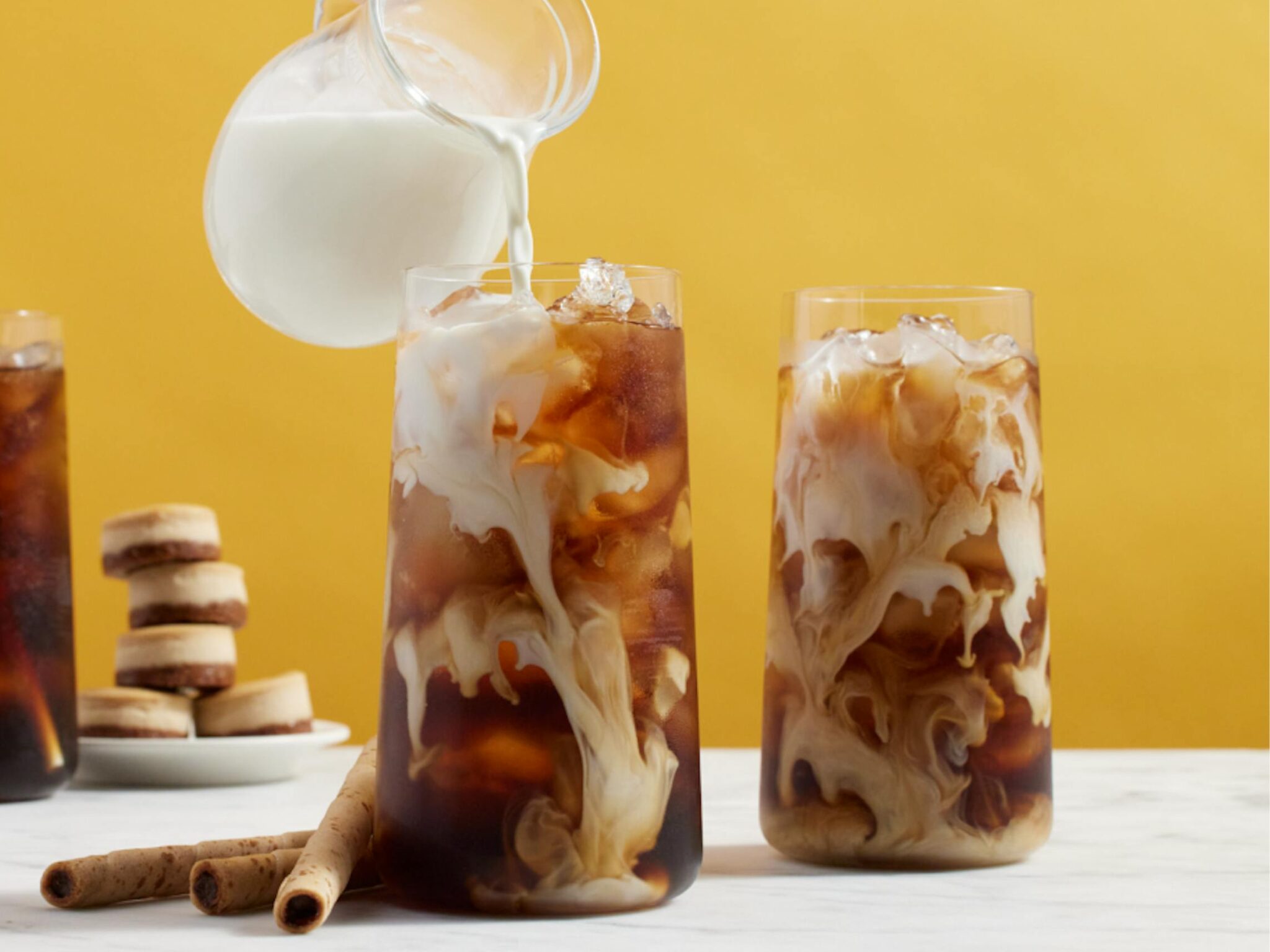Voyage Foods Debuts Beanless Coffee for Cafés and Brands, and It’s 40% Cheaper
5 Mins Read
Now available for commercial partners, Californian ethical pantry startup Voyage Foods’ beanless coffee is 40% cheaper than conventional options.
Voyage Foods has begun offering its bean-free coffee to cafés, restaurants and CPG brands, tackling an industry marred by climate change and supply chain volatility.
Made from a blend of roasted chickpeas, rice hulls, natural flavours and caffeine from green tea, the beanless coffee comes in ground, liquid, concentrate and instant formats (the liquid versions are filter-style). And based on order quantity, it’s up to 40% cheaper than conventional coffee, offering manufacturers stable prices and better margins.
The ingredient list is shorter than most other beanless coffee offerings on the market. “The secret sauce is how the ingredients are handled to make them taste the way coffee should taste,” Adam Maxwell, CEO and founder of Voyage Foods, told Green Queen.
“We used the traditional process of coffee roasting as our starting point. Our production looks remarkably similar to that,” he added.
‘Triple bottom line of people, planet, and profit’

Voyage Foods’ bean-free coffee goes through the same roasting and grinding processes as any other coffee. “From the roast and ground product, all the downstream processes are [at] parity with what is traditionally done to make a concentrate, instant, or ready-to-drink [offering].”
Commercial partners can choose caffeinated formats (with as much caffeine as cold brew) as well as decaf, alongside two different roast profiles. The medium-roast coffee has tasting notes of malt and caramelised sugar with low bitterness and medium acidity, while the dark-roast version has hints of smoke and dark cocoa with medium bitterness and low acidity.
It comes at a time when the future of coffee as a commodity is under jeopardy. Climate change has threatened the existence of 60% of the world’s wild coffee species. Meanwhile, arabica – the most popular coffee species – could go extinct by 2080.
Extreme weather events have diminished the amount of farmland suitable for growing arabica, which could be halved by 2050. And scientists are warning that increasingly frequent climate hazards will mean lower crop yields and skyrocketing prices for coffee.
In New York, arabica futures have gone up 34% since the start of the year, reaching $5,556 per tonne last week. This hike is happening globally, with prices unlikely to drop until mid-2025, according to Italian industry giant Lavazza. In the UK alone, a bag of coffee could set you back 20-25% over the next year.
So offering an option that’s 40% cheaper would be highly attractive to many manufacturers and foodservice operators. “Given the current dynamics of the coffee market, food and beverage suppliers are uneasy about supply-chain volatility as well as fulfilling their triple bottom line of people, planet, and profit,” said Maxwell.
But he was clear that specialty coffee drinkers aren’t the target audience. These consumers make up 20% of the market, with the majority of people drinking commodity coffee across the globe. “There will always be a place for premium, fair-trade, single-origin coffee, and that’s not our target – we intend to make the biggest possible impact, and we’ll do that by supplying an eco-friendlier, ethically made alternative to commodity coffee,” he stated.
Voyage Foods has no retail plans for beanless coffee

Coffee production itself also has a giant climate footprint. It is among the most carbon-intensive foods, with only dark chocolate and red meats like beef, lamb and mutton emitting more greenhouse gases per kg.
When it comes to emissions per 1,000 kcal, coffee tops the list. Additionally, producing a single cup of the beverage uses up 140 litres of water. To determine the environmental potential, Voyage Foods will soon conduct a life-cycle assessment for its beanless coffee.
This has pushed startups as well as industry giants to innovate with future-facing varieties and alternatives. Like Voyage Foods, Atomo, Prefer, Minus and Northern Wonder are making beanless coffee. Startups like Pluri and Stem are working on cell-based versions, while Amaterra is leveraging molecular biology and crop genetics to develop perennial coffee varieties.
In the same vein as the latter, Starbucks – which buys 3% of the world’s coffee – has created six new arabica varietals that are said to be climate-resilient, offering them to farmers for free trials. And just last week, Nestlé, the world’s largest CPG brand, developed a high-yielding variety resistant to crop leaf rust, a fungal disease that can decimate entire coffee crops.
New varieties aside, a major criticism of beanless coffee is the potential impact on farmers. After all, 80% of all coffee is grown by smallholder farmers, and 125 million people are dependent on the industry for their livelihoods.
“Voyage has never been focused on replacing any food commodity and we see our bean-free coffee products as additive to traditional coffee products. As there are issues in growing supply simultaneously with growing demand, we see ourselves helping buffer out the market and stabilising it,” Maxwell said.
He added that the company has always been determined to deliver the largest impact, which is why it chose to focus on helping foodservice operators and CPG brands deliver on their sustainability, cost and margin goals. “We’re evaluating partnership opportunities carefully and cautiously. Our team is always actively vetting new B2B and foodservice opportunities,” he said. “While you never know, we currently do not have plans to enter the bean-free coffee space in retail.”
Beanless coffee is Voyage Foods’ fourth core product line, complementing its cocoa-free chocolate,nut-free peanut butter and hazelnut spread (akin to a vegan Nutella, minus the hazelnuts or chocolate). The startup secured $52M in a Series A+ round in May, taking its total investment to $94M. And as a marker of its success, it has a commercial deal with food giant Cargill, which is now its exclusive B2B distributor internationally.



